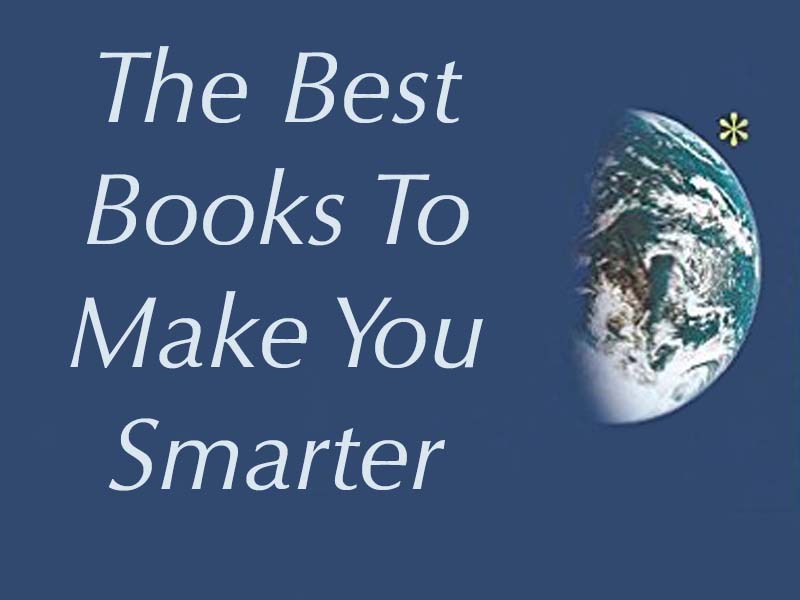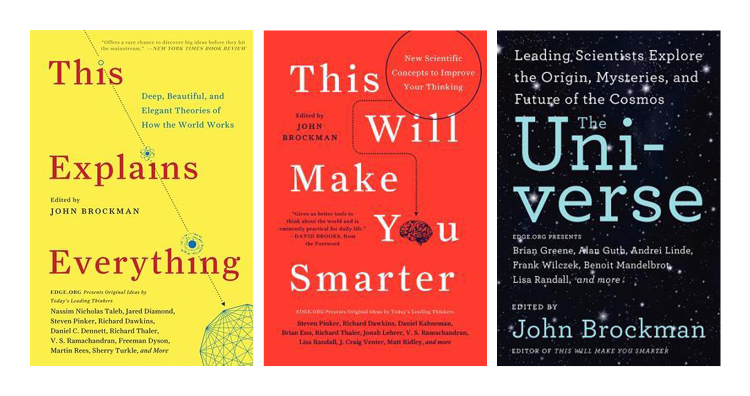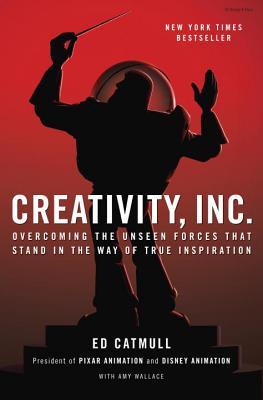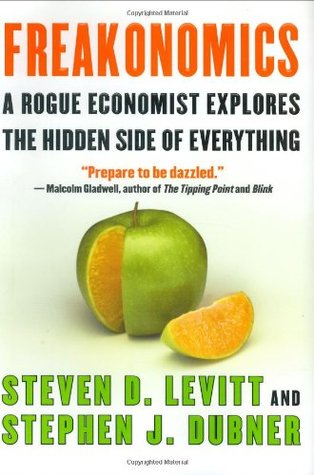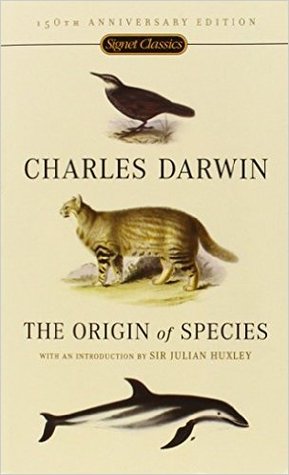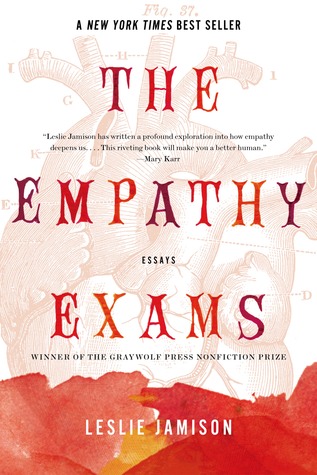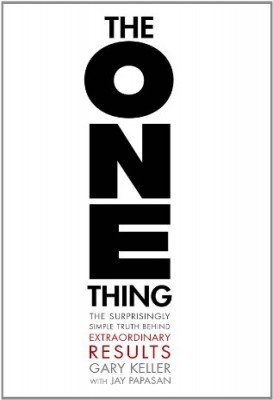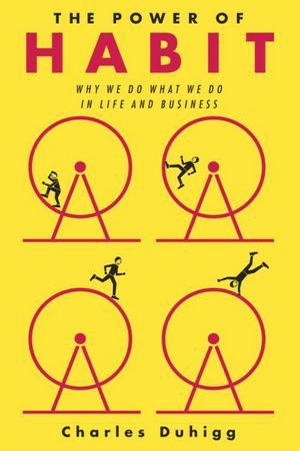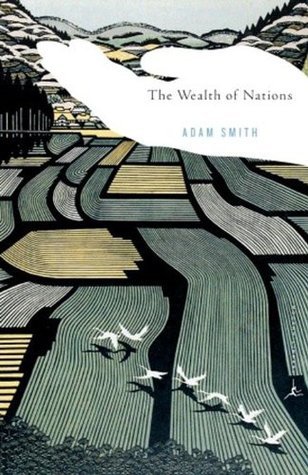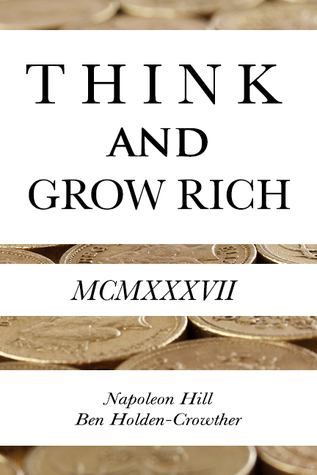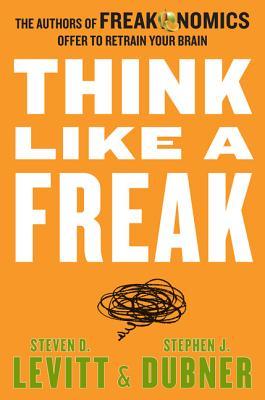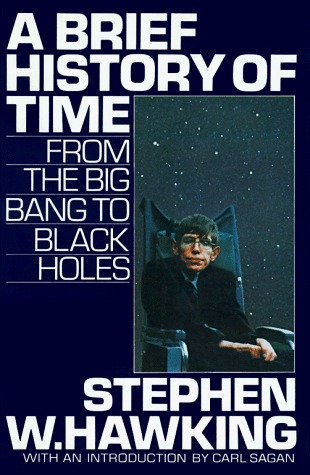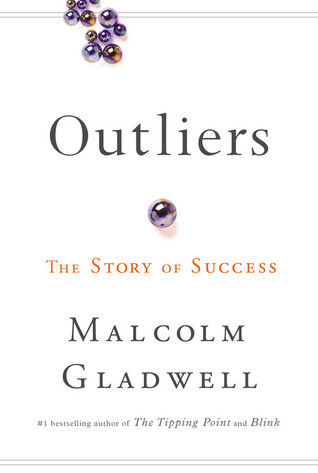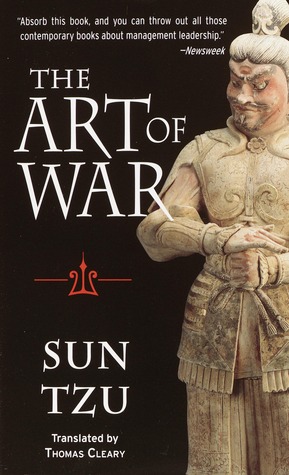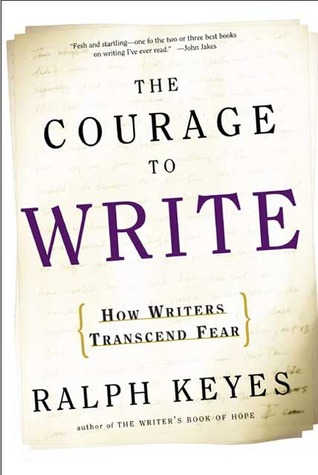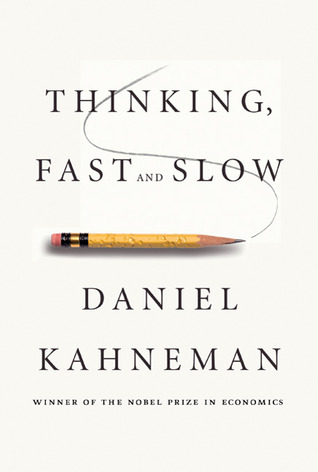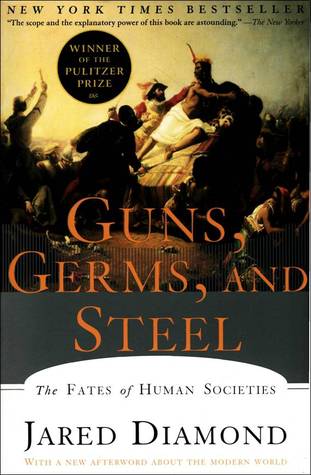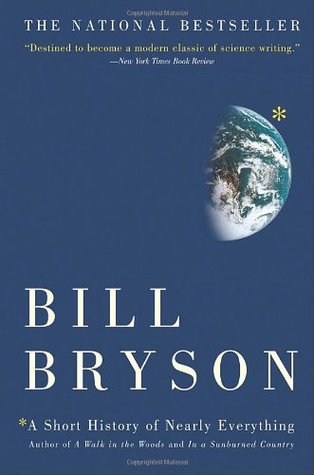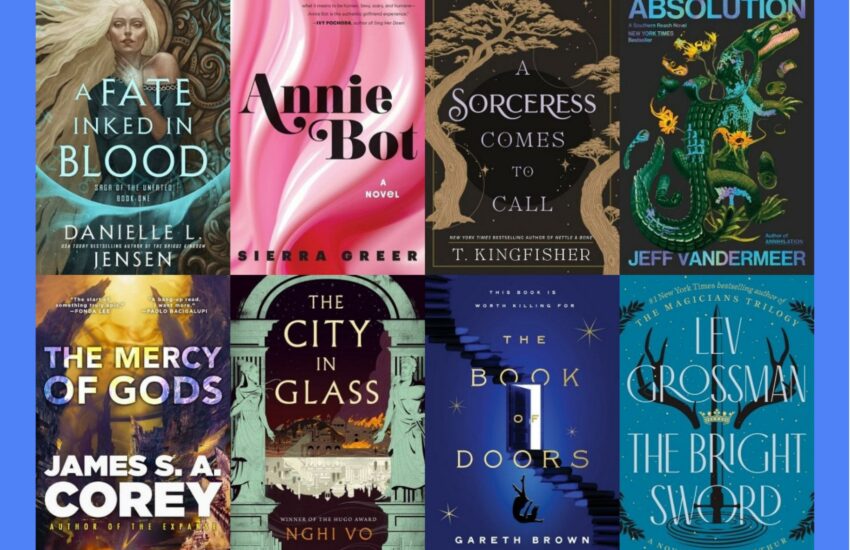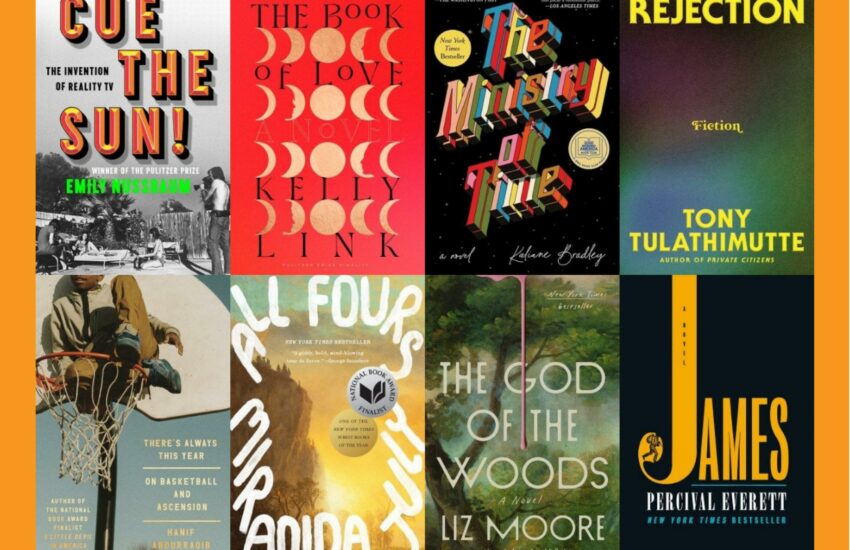The Best Books To Make You Smarter
What are the best books to read if you want to become smarter?” We looked at 196 of the top books to increase your intelligence, aggregating and ranking them so we could answer that very question!
Reading pretty much any book will make you smarter. Even reading the trashiest of trash can help you learn a new word, idea, or realize something you didn’t previously know. The books in this list are a bit more engaging and educational than your everyday book, covering a wide array of information and subjects (some might even claim “nearly everything”).
Below you can find the top 18 books, all appearing on two or more lists, along with images, summaries, and links. The remaining 176 books, as well as the sources we used, are listed alphabetically at the bottom of the page.
Happy Scrolling!
Top 18 Books To Read To Increase Your Intelligence
Editors Choice) John Brockman Edited Books
The John Brockman edited series of yearly books aren’t going to give you a deep dive into any one subject, but they will, hopefully, spark an idea or interest you might not know existed. Definitely good jumping off points for ideas, and a great resource to have around the house for a quick dive in for inspiration.
These are a yearly series of books, a few of which I’ve linked to below:
- This Will Make You Smarter: New Scientific Concepts to Improve Your Thinking
- The Universe: Leading Scientists Explore the Origin, Mysteries, and Future of the Cosmos
- This Explains Everything: Deep, Beautiful, and Elegant Theories of How the World Works
- Know This: Today’s Most Interesting and Important Scientific Ideas, Discoveries, and Developments
18 .) Creativity Inc.: Overcoming the Unseen Forces that Stand in the Way of True Inspiration by Ed Catmull and Amy Wallace
- Business
- Inc.
“Creativity, Inc. is a book for managers who want to lead their employees to new heights, a manual for anyone who strives for originality, and the first-ever, all-access trip into the nerve center of Pixar Animation—into the meetings, postmortems, and “Braintrust” sessions where some of the most successful films in history are made. It is, at heart, a book about how to build a creative culture—but it is also, as Pixar co-founder and president Ed Catmull writes, “an expression of the ideas that I believe make the best in us possible.”
For nearly twenty years, Pixar has dominated the world of animation, producing such beloved films as the Toy Story trilogy, Monsters, Inc., Finding Nemo, The Incredibles, Up, WALL-E, and Inside Out, which have gone on to set box-office records and garner thirty Academy Awards. The joyousness of the storytelling, the inventive plots, the emotional authenticity: In some ways, Pixar movies are an object lesson in what creativity really is. Here, in this book, Catmull reveals the ideals and techniques that have made Pixar so widely admired—and so profitable.”
17 .) Freakonomics: A Rogue Economist Explores the Hidden Side of Everything by Steven D. Levitt & Stephen J. Dubner
- ListOgre
- Why To Read
“Which is more dangerous, a gun or a swimming pool? What do schoolteachers and sumo wrestlers have in common? Why do drug dealers still live with their moms? How much do parents really matter? How did the legalization of abortion affect the rate of violent crime?
These may not sound like typical questions for an econo-mist to ask. But Steven D. Levitt is not a typical economist. He is a much-heralded scholar who studies the riddles of everyday life—from cheating and crime to sports and child-rearing—and whose conclusions turn conventional wisdom on its head.
Freakonomics is a groundbreaking collaboration between Levitt and Stephen J. Dubner, an award-winning author and journalist. They usually begin with a mountain of data and a simple question. Some of these questions concern life-and-death issues; others have an admittedly freakish quality. Thus the new field of study contained in this book: freakonomics.”
16 .) On the Origin of Species by Charles Darwin
- ListOgre
- Brain Pickings
On the Origin of Species (or more completely, On the Origin of Species by Means of Natural Selection, or the Preservation of Favoured Races in the Struggle for Life), published on 24 November 1859, is a work of scientific literature by Charles Darwin which is considered to be the foundation of evolutionary biology. Darwin’s book introduced the scientific theory that populations evolve over the course of generations through a process of natural selection. It presented a body of evidence that the diversity of life arose by common descent through a branching pattern of evolution. Darwin included evidence that he had gathered on the Beagle expedition in the 1830s and his subsequent findings from research, correspondence, and experimentation.
15 .) The Empathy Exams by Leslie Jamison
- Bryn Donovan
- Inc.
Beginning with her experience as a medical actor who was paid to act out symptoms for medical students to diagnose, Leslie Jamison’s visceral and revealing essays ask essential questions about our basic understanding of others: How should we care about each other? How can we feel another’s pain, especially when pain can be assumed, distorted, or performed? Is empathy a tool by which to test or even grade each other? By confronting pain―real and imagined, her own and others’―Jamison uncovers a personal and cultural urgency to feel. She draws from her own experiences of illness and bodily injury to engage in an exploration that extends far beyond her life, spanning wide-ranging territory―from poverty tourism to phantom diseases, street violence to reality television, illness to incarceration―in its search for a kind of sight shaped by humility and grace.
14 .) The One Thing: The Surprisingly Simple Truth Behind Extraordinary Results by Gary Keller
- Medium
- MCK Publishing Group
YOU WANT LESS. You want fewer distractions and less on your plate. The daily barrage of e-mails, texts, tweets, messages, and meetings distract you and stress you out. The simultaneous demands of work and family are taking a toll. And what’s the cost? Second-rate work, missed deadlines, smaller paychecks, fewer promotions–and lots of stress. AND YOU WANT MORE. You want more productivity from your work. More income for a better lifestyle. You want more satisfaction from life, and more time for yourself, your family, and your friends. NOW YOU CAN HAVE BOTH–LESS AND MORE. In The ONE Thing, you’ll learn to * cut through the clutter * achieve better results in less time * build momentum toward your goal* dial down the stress * overcome that overwhelmed feeling * revive your energy * stay on track * master what matters to you The ONE Thing delivers extraordinary results in every area of your life–work, personal, family, and spiritual. WHAT’S YOUR ONE THING?
13 .) The Power of Habit: Why We Do What We Do in Life and Business by Charles Duhigg
- Why To Read
- Business
In The Power of Habit, Pulitzer Prize–winning business reporterCharles Duhigg takes us to the thrilling edge of scientific discoveries that explain why habits exist and how they can be changed. Distilling vast amounts of information into engrossing narratives that take us from the boardrooms of Procter & Gamble to sidelines of the NFL to the front lines of the civil rights movement, Duhigg presents a whole new understanding of human nature and its potential. At its core, The Power of Habit contains an exhilarating argument: The key to exercising regularly, losing weight, being more productive, and achieving success is understanding how habits work. As Duhigg shows, by harnessing this new science, we can transform our businesses, our communities, and our lives.
12 .) The Prince by Niccolo Machiavelli
- Bryn Donovan
- Brain Pickings
“The original blueprint for realpolitik, The Prince shocked sixteenth-century Europe with its advocacy of ruthless tactics for gaining absolute power and its abandonment of conventional morality. For this treatise on statecraft, Machiavelli drew upon his own experience of office under the turbulent Florentine republic, rejecting traditional values of political theory and recognizing the complicated, transient nature of political life. Concerned not with lofty ideals, but with a regime that would last, this seminal work of modern political thought retains its power to alarm and to instruct.
For more than seventy years, Penguin has been the leading publisher of classic literature in the English-speaking world. With more than 1,700 titles, Penguin Classics represents a global bookshelf of the best works throughout history and across genres and disciplines. Readers trust the series to provide authoritative texts enhanced by introductions and notes by distinguished scholars and contemporary authors, as well as up-to-date translations by award-winning translators.”
11 .) The Wealth of Nations by Adam Smith
- Bryn Donovan
- Brain Pickings
The Wealth of Nations was published 9 March 1776, during the Scottish Enlightenment and the Scottish Agricultural Revolution. It influenced a number of authors and economists, as well as governments and organizations. For example, Alexander Hamilton was influenced in part by The Wealth of Nations to write his Report on Manufactures, in which he argued against many of Smith’s policies. Interestingly, Hamilton based much of this report on the ideas of Jean-Baptiste Colbert, and it was, in part, Colbert’s ideas that Smith responded to with The Wealth of Nations. Many other authors were influenced by the book and used it as a starting point in their own work, including Jean-Baptiste Say, David Ricardo, Thomas Malthus and, later, Ludwig von Mises. The Russian national poet Aleksandr Pushkin refers to The Wealth of Nations in his 1833 verse-novel Eugene Onegin.
10 .) Think and Grow Rich: The Original 1937 Unedited Edition by Napoleon Hill
- Malan
- MCK Publishing Group
“The most famous of all teachers of success spent a fortune and the better part of a lifetime of effort to produce the Law of Success philosophy that forms the basis of his books and that is so powerfully summarized and explained for the general public in this book.
In Think and Grow Rich, Hill draws on stories of Andrew Carnegie, Thomas Edison, Henry Ford, and other millionaires of his generation to illustrate his principles. This book will teach you the secrets that could bring you a fortune. It will show you not only what to do but how to do it. Once you learn and apply the simple, basic techniques revealed here, you will have mastered the secret of true and lasting success.
Money and material things are essential for freedom of body and mind, but there are some who will feel that the greatest of all riches can be evaluated only in terms of lasting friendships, loving family relationships, understanding between business associates, and introspective harmony which brings one true peace of mind! All who read, understand, and apply this philosophy will be better prepared to attract and enjoy these spiritual values.”
9 .) Think Like a Freak: The Authors of Freakonomics Offer to Retrain Your Brain by Steven D. Levitt and Stephen J. Dubner
- Business
- Inc.
With their trademark blend of captivating storytelling and unconventional analysis, Steven D. Levitt and Stephen J. Dubner take us inside their thought process and teach us all how to think a bit more productively, more creatively, more rationally. In Think Like A Freak, they offer a blueprint for an entirely new way to solve problems, whether your interest lies in minor lifehacks or major global reforms. The topics range from business to philanthropy to sports to politics, all with the goal of retraining your brain. Along the way, you’ll learn the secrets of a Japanese hot-dog-eating champion, the reason an Australian doctor swallowed a batch of dangerous bacteria, and why Nigerian e-mail scammers make a point of saying they’re from Nigeria.
8 .) A Brief History of Time by Stephen Hawking
- Cool Material
- ListOgre
- MCK Publishing Group
“A landmark volume in science writing by one of the great minds of our time, Stephen Hawking’s book explores such profound questions as: How did the universe begin—and what made its start possible? Does time always flow forward? Is the universe unending—or are there boundaries? Are there other dimensions in space? What will happen when it all ends?
Told in language we all can understand, A Brief History of Time plunges into the exotic realms of black holes and quarks, of antimatter and “arrows of time,” of the big bang and a bigger God—where the possibilities are wondrous and unexpected. With exciting images and profound imagination, Stephen Hawking brings us closer to the ultimate secrets at the very heart of creation.”
7 .) Cosmos by Carl Sagan
- Listverse
- Why To Read
- Business
Cosmos is one of the bestselling science books of all time. In clear-eyed prose, Sagan reveals a jewel-like blue world inhabited by a life form that is just beginning to discover its own identity and to venture into the vast ocean of space. Featuring a new Introduction by Sagan’s collaborator, Ann Druyan, full color illustrations, and a new Foreword by astrophysicist Neil deGrasse Tyson, Cosmos retraces the fourteen billion years of cosmic evolution that have transformed matter into consciousness, exploring such topics as the origin of life, the human brain, Egyptian hieroglyphics, spacecraft missions, the death of the Sun, the evolution of galaxies, and the forces and individuals who helped to shape modern science.
6 .) Outliers: The Story of Success by Malcom Gladwell
- Cool Material
- Why To Read
- Business
“In this stunning new book, Malcolm Gladwell takes us on an intellectual journey through the world of “”outliers””–the best and the brightest, the most famous and the most successful. He asks the question: what makes high-achievers different?
His answer is that we pay too much attention to what successful people are like, and too little attention to where they are from: that is, their culture, their family, their generation, and the idiosyncratic experiences of their upbringing. Along the way he explains the secrets of software billionaires, what it takes to be a great soccer player, why Asians are good at math, and what made the Beatles the greatest rock band. “
5 .) The Art of War by Sun Tzu
- Bryn Donovan
- Business
- Brain Pickings
Conflict is an inevitable part of life, according to this ancient Chinese classic of strategy, but everything necessary to deal with conflict wisely, honorably, victoriously, is already present within us. Compiled more than two thousand years ago by a mysterious warrior-philosopher, The Art of War is still perhaps the most prestigious and influential book of strategy in the world, as eagerly studied in Asia by modern politicians and executives as it has been by military leaders since ancient times. As a study of the anatomy of organizations in conflict, The Art of War applies to competition and conflict in general, on every level from the interpersonal to the international. Its aim is invincibility, victory without battle, and unassailable strength through understanding the physics, politics, and psychology of conflict.
4 .) The Courage to Write by Ralph Keyes
- Listverse
- Barnes & Noble
- Business
“In The Courage to Write, Ralph Keyes, an author who has taught writing for more than thirty years, assures us that anxiety is felt by writers at every level, especially when they dare to do their best. He describes the sequence of “”courage points”” through which all writers must pass, from the challenge of identifying a worthwhile project to the mixture of pride and panic they feel when examining a newly published book or article.
Keyes also offers specifics on how to root out dread of public “”performance”” and of the judgment of family and friends, make the best use of writers’ workshops and conferences, and handle criticism of works in progress. Throughout, he includes the comments of many accomplished writers — Pat Conroy, Amy Tan, Rita Dove, Isabel Allende, and others — on how they transcended their own fears to produce great works.”
3 .) Thinking, Fast and Slow by Daniel Kahneman
- Why To Read
- Cool Material
- Business
- Buzzfeed
In the international bestseller, Thinking, Fast and Slow, Daniel Kahneman, the renowned psychologist and winner of the Nobel Prize in Economics, takes us on a groundbreaking tour of the mind and explains the two systems that drive the way we think. System 1 is fast, intuitive, and emotional; System 2 is slower, more deliberative, and more logical. The impact of overconfidence on corporate strategies, the difficulties of predicting what will make us happy in the future, the profound effect of cognitive biases on everything from playing the stock market to planning our next vacation―each of these can be understood only by knowing how the two systems shape our judgments and decisions.
2 .) Guns, Germs, and Steel: The Fates of Human Societies by Jared M. Diamond
- Cool Material
- Why To Read
- ListOgre
- Buzzfeed
- Listverse
In this “artful, informative, and delightful” (William H. McNeill, New York Review of Books) book, Jared Diamond convincingly argues that geographical and environmental factors shaped the modern world. Societies that had had a head start in food production advanced beyond the hunter-gatherer stage, and then developed religion –as well as nasty germs and potent weapons of war –and adventured on sea and land to conquer and decimate preliterate cultures. A major advance in our understanding of human societies, Guns, Germs, and Steel chronicles the way that the modern world came to be and stunningly dismantles racially based theories of human history. Winner of the Pulitzer Prize, the Phi Beta Kappa Award in Science, the Rhone-Poulenc Prize, and the Commonwealth club of California’s Gold Medal.
1 .) A Short History of Nearly Everything by Bill Bryson
- Business
- Buzzfeed
- Cool Material
- Listverse
- Why To Read
In A Walk in the Woods, Bill Bryson trekked the Appalachian Trail—well, most of it. In A Sunburned Country, he confronted some of the most lethal wildlife Australia has to offer. Now, in his biggest book, he confronts his greatest challenge: to understand—and, if possible, answer—the oldest, biggest questions we have posed about the universe and ourselves. Taking as territory everything from the Big Bang to the rise of civilization, Bryson seeks to understand how we got from there being nothing at all to there being us. To that end, he has attached himself to a host of the world’s most advanced (and often obsessed) archaeologists, anthropologists, and mathematicians, travelling to their offices, laboratories, and field camps. He has read (or tried to read) their books, pestered them with questions, apprenticed himself to their powerful minds. A Short History of Nearly Everything is the record of this quest, and it is a sometimes profound, sometimes funny, and always supremely clear and entertaining adventure in the realms of human knowledge, as only Bill Bryson can render it. Science has never been more involving or entertaining.
The #19-196 Additional Best Books To Make You Smarter
| # | Book | Author | Lists |
| (Books Appear On 1 List Each) | |||
| 19 | 10:04 | Ben Lerner | The Huffington Post |
| 20 | A History of Western Philosophy | Bertrand Russell | Lifehack Lane |
| 21 | A New Earth: Create a Better Life | Eckhart Tolle | MCK Publishing Group |
| 22 | A People’s History of the United States | Howard Zinn | Listverse |
| 23 | A PICTURE OF DORIAN GRAY | OSCAR WILDE | Mens XP |
| 24 | A Walk In The Woods: Rediscovering America on the Appalachian Trail | Bill Bryson | Barnes & Noble |
| 25 | Age of Ambition: Chasing Fortune, Truth, and Faith in the New China | Evan Osnos | Inc. |
| 26 | All Quiet on the Western Front | Erich Maria Remarque. | Bryn Donovan |
| 27 | Americanah | Chimamanda Ngozi Adichie | The Huffington Post |
| 28 | An Autobiography: The Story of My Experiments with Truth | M.K. Gandhi, Sunil Khilnani, Mahadev Desai, Mohandas Karamchand Gandhi, Mahatma Gandhi | MCK Publishing Group |
| 29 | An Incomplete Education | ListOgre | |
| 30 | And So It Goes And So It Goes | Charles J. Shields | NPR |
| 31 | Antifragile | Nassim Nicholas | Stop Start Do |
| 32 | At Home: A Short History of Private Life | Bill Bryson | Listverse |
| 33 | Atlas Shrugged (Penguin Modern Classics) | Ayn Rand | MCK Publishing Group |
| 34 | Awaken The Giant Within: How to Take Immediate Control of Your Mental, Emotional, Physical and Financial Life | Tony Robbins | MCK Publishing Group |
| 35 | Because It Is Bitter, and Because It Is My Heart | Joyce Carol Oates. | Bryn Donovan |
| 36 | Behind the Beautiful Forevers: Life | Katherine Boo. | Bryn Donovan |
| 37 | Believing Bullshit | Stephen Law | Buzzfeed |
| 38 | Beowulf | translation by Seamus Heaney. | Bryn Donovan |
| 39 | Between the World and Me | Ta-Nehisi Coates | The Huffington Post |
| 40 | Beyond Religion: Ethics for a Whole World | Dalai Lama | MCK Publishing Group |
| 41 | Big Magic: Creative Living Beyond Fear | Elizabeth Gilbert | MCK Publishing Group |
| 42 | Bold | Peter H. Diamandis | Stop Start Do |
| 43 | Business Adventures: Twelve Classic Tales from the World of Wall Street | John Brooks | Forbes |
| 44 | CA$HVERTISING: How to Use More than 100 Secrets of Ad-Agency Psychology to Make Big Money Selling Anything to Anyone | Malan | |
| 45 | Can’t and Won’t | Lydia Davis | The Huffington Post |
| 46 | Catch-22 | Joseph Heller. | Bryn Donovan |
| 47 | Chasing the North Star | Robert Morgan | She Knows |
| 48 | Circling the Sun | Paula McLain | She Knows |
| 49 | Cloud Atlas | David Mitchell. | Bryn Donovan |
| 50 | Consuelo and Alva Vanderbilt: The Story of a Daughter and a Mother in the Gilded Age | Amanda MacKenzie Stuart | Barnes & Noble |
| 51 | Contrary Notions | Michael Parenti | Listverse |
| 52 | Daily Rituals: How Artists Work | Malan | |
| 53 | Dataclysm: Who We Are (When We Think No One’s Looking | Christian Ruder | Inc. |
| 54 | Dawn | Octavia E. Butler | Bryn Donovan |
| 55 | Democracy in America | Alexis de Tocqueville. | Bryn Donovan |
| 56 | Diamond Head | Cecily Wong | She Knows |
| 57 | Discourse on Method and Meditations on First Philosophy | René Descartes | Bryn Donovan |
| 58 | Dissident Gardens | Jonathan Lethem | The Huffington Post |
| 59 | Do Androids Dream of Electric Sheep? | Philip K. Dick | Bryn Donovan |
| 60 | Do the Work | Medium | |
| 61 | Dominion: The Power of Man, The Suffering of Animals, and a Call to Mercy | Matthew Scully | Bryn Donovan |
| 62 | Don Quixote | Cervantes. | Bryn Donovan |
| 63 | Einstein: His Life and Universe | Walter Isaacson | Forbes |
| 64 | Everyday Sexism | Laura Bates | Inc. |
| 65 | Evolutionary Psychology: The New Science of the Mind, Fifth Edition | David Buss | MCK Publishing Group |
| 66 | Excellent Sheep: The Miseducation of the American Elite and the Way to a Meaningful Life | William Deresiewicz | Inc. |
| 67 | Factory Man: How One Furniture Maker Battled Offshoring, Stayed Local–and Helped Save an American Town | Beth Macy | Inc. |
| 68 | Five Easy Decades: How Jack Nicholson Became the Biggest Movie Star in Modern Times | Dennis McDougal | MCK Publishing Group |
| 69 | Flatland | ListOgre | |
| 70 | Flight of Dreams | Ariel Lawhon | She Knows |
| 71 | Flow | Medium | |
| 72 | For Love of Country: What Our Veterans Can Teach Us About Citizenship, Heroism, and Sacrifice | Howard Schultz and Rajiv Chandrasekaran | Inc. |
| 73 | Fun Home | Alison Bechdel | The Huffington Post |
| 74 | Genome: The Autobiography of a Species in 23 Chapters | Matt Ridley | Bryn Donovan |
| 75 | Gulliver’s Travels | Jonathan Swift | Brain Pickings |
| 76 | Gulp: Adventures on the Ailmentary Canal | Mary Roach | Barnes & Noble |
| 77 | Half of a Yellow Sun | Chimimanda Ngozi Adichie | Bryn Donovan |
| 78 | Humiliation: And Other Essays on Honour, Social Discomfort and Violence | William Ian Miller | Lifehack Lane |
| 79 | I Always Loved You | Robin Oliveira | She Knows |
| 80 | I Am That | Nisargadatta Maharaj | Lifehack Lane |
| 81 | In the Woods | Tana French. | Bryn Donovan |
| 82 | Infidel | Ayaan Hirsi Ali | Lifehack Lane |
| 83 | Influence: The Psychology of Persuasion | ListOgre | |
| 84 | Into the Savage Country | Shannon Burke | She Knows |
| 85 | INTO THE WILD | JOHN KRAKAUER | Mens XP |
| 86 | Intuition Pumps | Daniel Dennett | Buzzfeed |
| 87 | Ishmael | ListOgre | |
| 88 | It Works: The Famous Little Red Book That Makes Your dreams Come True! | R H Jarrett | MCK Publishing Group |
| 89 | James Madison | Richard Brookhiser | NPR |
| 90 | John Brown | W.E.B. DuBois | Bryn Donovan |
| 91 | Jump Start Your Business Brain | Doug Hall | Business |
| 92 | Leave Your Mark: Land Your Dream Job | Aliza Licht | Bryn Donovan |
| 93 | Life Is What You Make It | Peter Buffett | Forbes |
| 94 | London, a Biography | Peter Ackroyd. | Bryn Donovan |
| 95 | Machete Season: The Killers In Rwanda Speak | Jean Hatzfield | Lifehack Lane |
| 96 | Man’s Search For Meaning: The classic tribute to hope from the Holocaust | Viktor E Frankl | MCK Publishing Group |
| 97 | Managing Oneself (Harvard Business Review Classics) | Peter F. Drucker | MCK Publishing Group |
| 98 | Mastery | Robert Greene | Stop Start Do |
| 99 | Meditations, Marcus Aurelius, a newish translation | Gregory Hays | Bryn Donovan |
| 100 | Monocle Guide to Better Living | Andrew Tuck and Santiago Rodriguez Tarditi | Cool Material |
| 101 | Mother Teresa: An Authorized Biography | Kathryn Spink | MCK Publishing Group |
| 102 | Nudge | Medium | |
| 103 | Of Grammatology | Jacques Derrida. | Bryn Donovan |
| 104 | Oryx and Crake | Margaret Atwood. | Bryn Donovan |
| 105 | Peace Is Every Step: The Path of Mindfulness in Everyday Life | Malan | |
| 106 | Persepolis: The Story of a Childhood | Marjane Satrapi. | Bryn Donovan |
| 107 | Philosophy 101 | Paul Kleinman | Cool Material |
| 108 | Physics of the Impossible: A Scientific Exploration into the World of Phasers, Force Fields, Teleportation, and Time Travel | Michio Kaku. | Bryn Donovan |
| 109 | Play It As It Lays | Joan Didion | Bryn Donovan |
| 110 | Predictably Irrational | Dan Ariely | Listverse |
| 111 | Radioactive Marie & Pierre Curie: A Tale of Love & Fallout | Lauren Redniss | NPR |
| 112 | Reasons and Persons | Derek Parfit | Lifehack Lane |
| 113 | Riveted | Jim Davies | MCK Publishing Group |
| 114 | Saga | Brian K. Vaughan | Bryn Donovan |
| 115 | Salt to the Sea | Ruta Sepetys | She Knows |
| 116 | Sapiens: A Brief History of Humankind | Yuval Noah Harari | MCK Publishing Group |
| 117 | Six Easy Pieces: Essentials of Physics Explained by Its Most Brilliant Teacher | Richard P. Feynman | Why To Read |
| 118 | Stars over Sunset Boulevard | Susan Meissner | She Knows |
| 119 | Steve Jobs A Biography | Walter Isaacson | NPR |
| 120 | Stones in the Road | E.B. Moore | She Knows |
| 121 | Strong Poison | Dorothy L. Sayers. | Bryn Donovan |
| 122 | Stuff Matters: Exploring the Marvelous Materials That Shape Our Man-Mad World | Mark Miodownik. | Bryn Donovan |
| 123 | SuperFreakonomics | Steven D. Levitt and Stephen J. Dubner | Cool Material |
| 124 | Superintelligence | Nick Bostrom | Lifehack Lane |
| 125 | Swamplandia! | Karen Russell | The Huffington Post |
| 126 | Tao of Jeet Kune Do | Bruce Lee | Listverse |
| 127 | Tenth of December | George Saunders | The Huffington Post |
| 128 | Terrible Virtue | Ellen Feldman | She Knows |
| 129 | Tesla: Inventor of the Electrical Age | W. Bernard Carlson | Bryn Donovan |
| 130 | The 4-Hour Chef: The Simple Path to Cooking Like a Pro, Learning Anything, and Living the Good Life | Malan | |
| 131 | The 5 Elements of Effective Thinking | Medium | |
| 132 | The Age of Ambition: Chasing Fortune, Truth, and Faith in the New China | Evan Osnos | Bryn Donovan |
| 133 | The Age of Reason | Thomas Paine | Brain Pickings |
| 134 | The American Way of Death | Jessica Mitford | Barnes & Noble |
| 135 | The Annotated Alice | Lewis Carroll, Notes by Martin Gardner | Barnes & Noble |
| 136 | The Apple Experience: Secrets to Building Insanely Great Customer Loyalty | Gallo | MCK Publishing Group |
| 137 | The Arabian Nights | translated by Muhsin Mahdi and Husain Haddawy | Bryn Donovan |
| 138 | The Bad Guys Won | Jeff Pearlman. | Bryn Donovan |
| 139 | The Bad Samaritans: The Myth of Free Trade and the Secret History of Capitalism | Ha-Joon Chang | Bryn Donovan |
| 140 | The Better Angels of Our Nature | Steven Pinker | Buzzfeed |
| 141 | The Bhagavad Gita | translated by Eknath Easwaran | Bryn Donovan |
| 142 | The Bible | Brain Pickings | |
| 143 | The Black Swan | Nassim Nicholas Taleb | Cool Material |
| 144 | The Bully Pulpit: Theodore Roosevelt | Doris Kearns Goodwin | Bryn Donovan |
| 145 | The Catcher in the Rye | J.D. Salinger | Forbes |
| 146 | The Count of Monte Cristo | ListOgre | |
| 147 | The Demon-Haunted World | Carl Sagan | Buzzfeed |
| 148 | THE DHARMA BUMS | JACK KEROUAC | Mens XP |
| 149 | THE DRIFTERS | JAMES MICHENER | Mens XP |
| 150 | The Empire of the Summer Moon: Quanah Parker and the Rise and Fall of the Comanches, the Most Powerful Indian Tribe in American History | S.C. Gwynne | Bryn Donovan |
| 151 | The Everything Store: Jeff Bezos and the Age of Amazon | Brad Stone | MCK Publishing Group |
| 152 | The First 20 Hours | Medium | |
| 153 | The Flight of Garuda: The Dzogchen Tradition of Tibetan Buddhism | Keith Dowman | Lifehack Lane |
| 154 | The Greatest Salesman in the World | Mandino Og | MCK Publishing Group |
| 155 | The Greatest Secret in the World | Og Mandino | Business |
| 156 | The Guns of August | Barbara Tuchman. | Bryn Donovan |
| 157 | The Holographic Universe | Michael Talbot | Listverse |
| 158 | The Holy Qoran | Lifehack Lane | |
| 159 | The Human Age: The World Shaped by Us | Diane Ackerman | Inc. |
| 160 | The Icarus Deception: How High Will You Fly? | Seth Godin | MCK Publishing Group |
| 161 | The Iliad | Homer (a new translation by Peter Green) | Bryn Donovan |
| 162 | The Immortal Life of Henrietta Lacks | Rebecca Skloot. | Bryn Donovan |
| 163 | The Innovator’s Dilemma | Clayton M. Christensen | Forbes |
| 164 | The Intelligent Investor | Benjamin Graham | Forbes |
| 165 | The Journalist and The Murderer | Janet Malcolm | Lifehack Lane |
| 166 | The Last Word | Thomas Nagel | Lifehack Lane |
| 167 | The Magic Mountain | Thomas Mann. | Bryn Donovan |
| 168 | The Maltese Falcon | Dashiell Hammett. | Bryn Donovan |
| 169 | The Moral Animal: Why We Are, the Way We Are | Robert Wright | Why To Read |
| 170 | The New Jim Crow: Mass Incarceration in the Age of Colorblindness | Michelle Alexander | Bryn Donovan |
| 171 | The Organized Mind | Medium | |
| 172 | The Republic (Penguin Classics) | Plato | MCK Publishing Group |
| 173 | The Rise and Fall of the Third Reich | William L. Shirer | Bryn Donovan |
| 174 | The Selfish Gene | Richard Dawkins | Buzzfeed |
| 175 | The Sound and the Fury | William Faulkner. | Bryn Donovan |
| 176 | The Story of the Human Body: Evolution, Health, and Disease | Daniel E. Lieberman | MCK Publishing Group |
| 177 | The System of the World | Isaac Newton | Brain Pickings |
| 178 | The Tale of the Dueling Nuerosurgeons: The History of the Human Brain as Revealed by True Stories of Trauma, Madness, and Recovery | Sam Kean. | Bryn Donovan |
| 179 | The Theory of Everything: The Origin and Fate of the Universe | Stephen W. Hawking | MCK Publishing Group |
| 180 | The Thirty-Nine Steps | John Buchan | Bryn Donovan |
| 181 | The Tibetan Book of the Dead | Bryn Donovan | |
| 182 | The Universe Within | Neil Shubin | Buzzfeed |
| 183 | The Year of Magical Thinking | Joan Didion | Lifehack Lane |
| 184 | Think | Simon Blackburn | Buzzfeed |
| 185 | This Is How You Lose Her | Junot Díaz | The Huffington Post |
| 186 | This Will Make You Smarter: New Scientific Concepts to Improve Your Thinking | John Brockman | Why To Read |
| 187 | Thrive: The Third Metric to Redefining Success and Creating a Happier Life | Arianna Huffington | MCK Publishing Group |
| 188 | TO KILL A MOCKING BIRD | HARPER LEE | Mens XP |
| 189 | Train Your Brain Su Doku | Wayne Gold. | Barnes & Noble |
| 190 | Under the Wide and Starry Sky | Nancy Horan | She Knows |
| 191 | Van Gogh The Life | Steven Naifeh and Gregory White Smith | NPR |
| 192 | What Every BODY is Saying: An Ex-FBI Agent’s Guide to Speed-Reading People | ListOgre | |
| 193 | What If? | Randall Munroe | Cool Material |
| 194 | Where Good Ideas Come From | Steven Johnson | Stop Start Do |
| 195 | Woman Hollering Creek and Other Stories | Sandra Cisneros | The Huffington Post |
| 196 | You Are Not Your Brain | Jeffrey Schwarz | Business |
21 Best Books That Will Make You Smarter Book Sources/Lists
| Source | Article |
| Barnes & Noble | 7 Books Guaranteed To Make You Smarter |
| Brain Pickings | Neil deGrasse Tyson Selects the Eight Books Every Intelligent Person on the Planet Should Read |
| Bryn Donovan | 50 Books That Might Make Me Smarter…Have You Read Them? |
| Business | Give Your Brain a Boost: 12 Books Guaranteed to Make You More Intelligent |
| Buzzfeed | 10 Books Guaranteed To Make You Smarter |
| Cool Material | 10 Books That Will Make You Seem Smarter Than You Really Are |
| Forbes | 9 Creative Ways To Find Books That Will Make You A Genius |
| Granby.K12 | 100 Books That Will Make You More Interesting, More Attractive, and Sound Smart Even If You Aren’t (Yet) |
| Inc. | 10 Books That Will Make You Smarter in 2015 |
| Lifehack Lane | 12 Books That Will Make You Smarter |
| ListOgre | TOP 10 BOOKS THAT MAKE YOU SMARTER |
| Listverse | 10 Books That Will Make You Smarter |
| Malan | 5 Books That Will Make You Smarter |
| MCK Publishing Group | Books That Will Make You Smarter |
| Medium | These Books Will Make You Smarter |
| Mens XP | Brain Food: Books That Make You Smarter |
| NPR | The Lives Of Geniuses: Five Brilliant Biographies |
| She Knows | 11 historical fiction books that will make you smarter |
| Stop Start Do | 4 BOOKS THAT WILL MAKE YOU A GENIUS |
| The Huffington Post | 10 Ingenious Books By Certifiable Geniuses |
| Why To Read | 10 Easy To Read Books That Make You Smarter |
